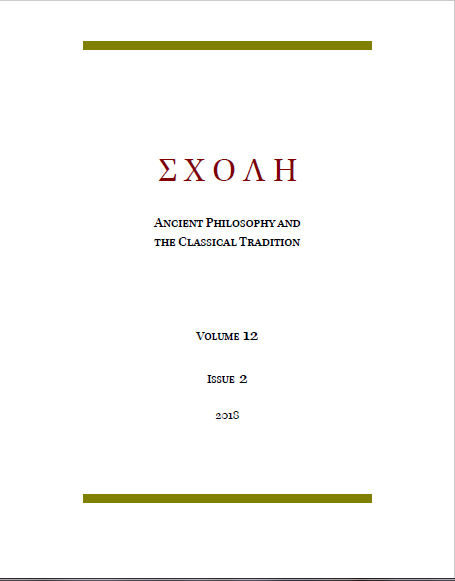ПРИСВОЕНИЕ ЧУЖЕЗЕМНОЙ УЧЕНОСТИ В АНТИЧНОЙ И СРЕДНЕВЕКОВОЙ ЛАТИНСКОЙ ТРАДИЦИИ
APPROPRIATION OF FOREIGN LEARNING IN ANCIENT AND MEDIEVAL LATIN TRADITION
Author(s): Valery V. PetroffSubject(s): Cultural history, Ancient World, Middle Ages, History of Education
Published by: Новосибирский государственный университет
Keywords: translatio studii; translatio imperii; appropriation of knowledge; Cicero; Horace; Boethius; Alcuin; John Scottus Eriugena; Heiric of Auxerre;
Summary/Abstract: The article gives a brief overview of ancient and medieval programs that aimed to appropriate and transfer the legacy and scholarship from previous cultures. We consider the attitudes of Roman intellectuals towards the translation practices. The rendering of the authoritative works from Greek into Latin was not supposed to result in the exact communication of the contents and meaning of a foreign text by means of the Latin language and not the accurate reproduction of the original text, but the creation of a Latin equivalent that had to replace and even eliminate the original work. In this case, the “translation” was deliberately “adapted”: it incorporated translator’s commentaries and digressions of every kind; it also reflected the mentality and worldview of Roman readers. The practices of appropriating the legacy of the previous culture were formulated in terms of “capture”, “military booty” and “expropriation”. We observe in greater details the relevant arguments of Cicero, Horace, and Boethius and, with reference to the periods of cultural revival in the Middle Ages, excerpts from Alcuin, John Scottus Eriugena, and Heiric of Auxerre.
Journal: ΣΧΟΛΗ. Философское антиковедение и классическая традиция
- Issue Year: XII/2018
- Issue No: 2
- Page Range: 569-581
- Page Count: 13
- Language: Russian

